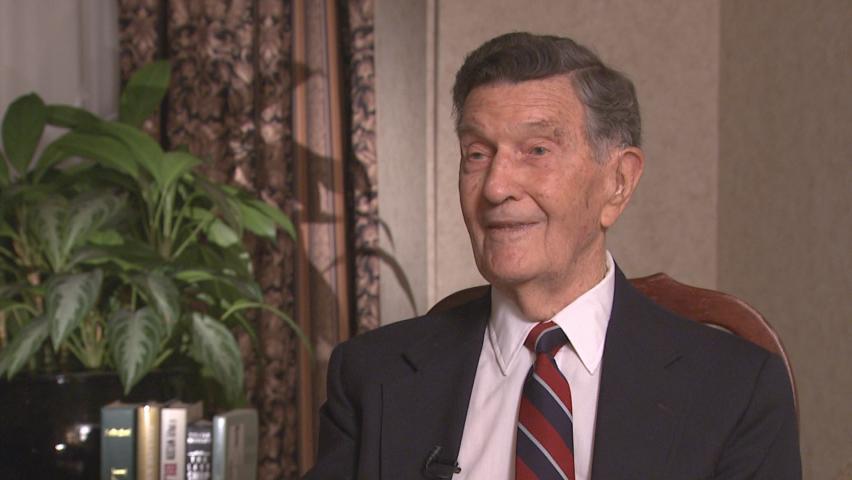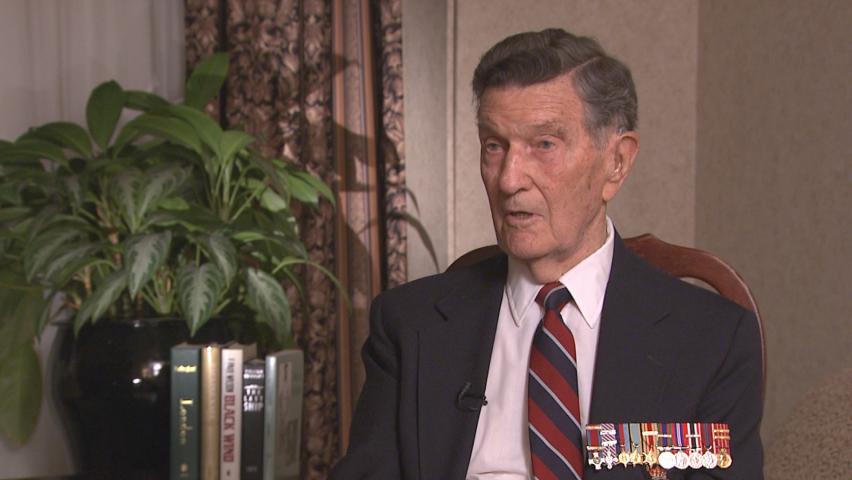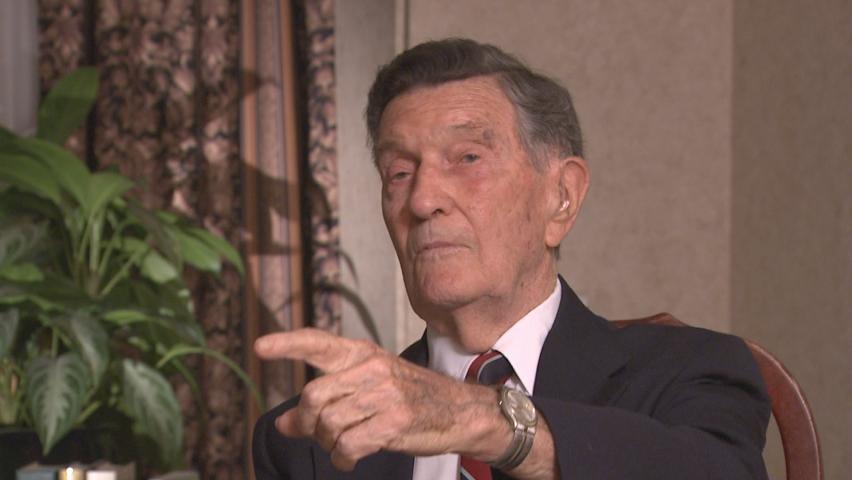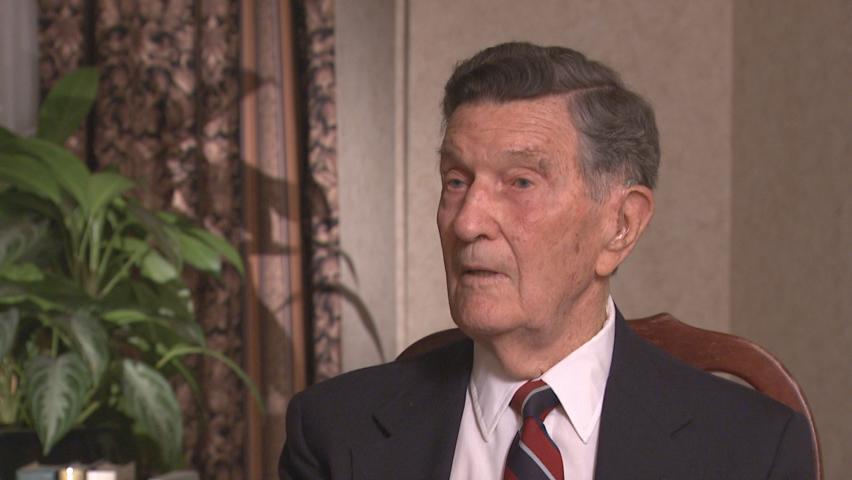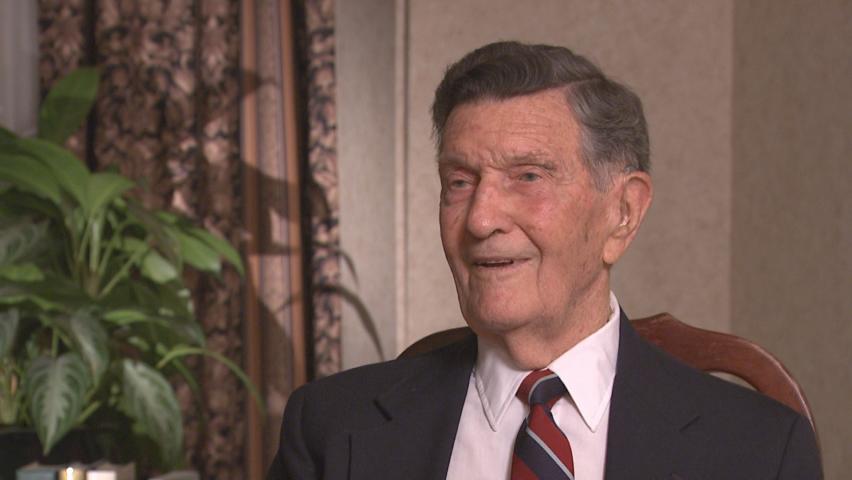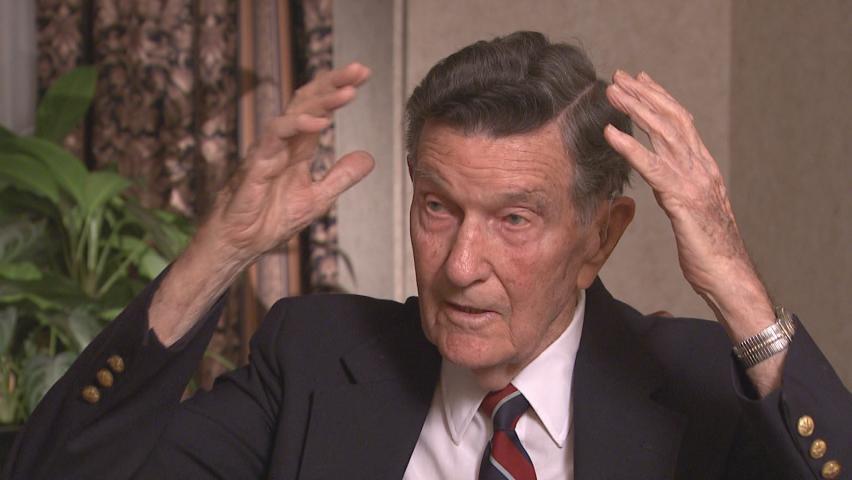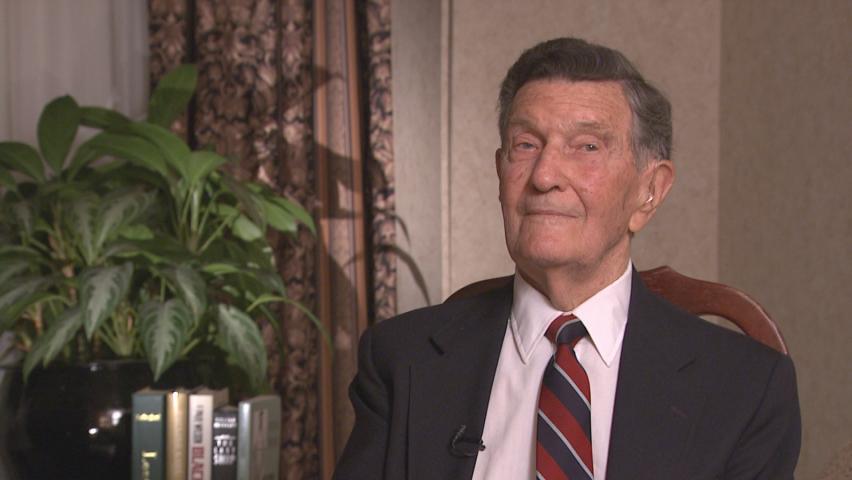First raid we did was a nursery raid.
A nursery raid is when you
have little penetration,
you do generally a coastal target so
in a sense it’s a navigation aspect at night,
it’s a bombing raid but there’s not too
much of the enemy action,
do you know what I mean?
It’s not making a deep penetration,
it’s an initial phase as they say,
a nursery raid and we did our nursery raid
and then we had done another,
we were on our forth trip and we ended
up having to do a forced landing in the sea.
We were fortunate that everybody was
able to get out and get in the dinghy,
it was just about dawn.
And the misfortune aspect was that
I stayed up with the pilot at the front,
we had no co-pilot and by the time
I was lying on the floor and he was in his
cockpit flying the aircraft,
as soon as you hit the water,
it was a good landing but
of course the nose crushes in the aircraft,
the water comes in just like a force of
gravity in pushing in so by the time
I got to my feet, and shooken,
his harness had broken and
he had gone forward and hit his head on
the instrument panel so he was bleeding
somewhat and he thought
I’d already escaped and was up top but
I was pushing him up to get him up
on top and when he got up on the
fuselage of the aircraft,
he was looking for me so kind of turned
around and then he slipped down between
the fuselage and the engine cell and
of course it’s a metal aircraft and
he can’t climb back up,
it’s too slippery so by the time
I got up and got out, I got down
on the wing to give him a hand,
to get him back up and as
we walked down the fuselage,
the water, the ship was just sinking and
the water just came slowly up our legs and
my flying boots just peeled off,
they were suede type flying boots and
you could see I had my flashlight
tucked in my boot and you could see the
flashlight with the boot going down in the water.
And the three, four members of the crew
were sort of with the dinghy
but the dinghy is on a lanyard and
you throw the dinghy out and
when it reaches the end of the lanyard,
it pulls and starts the high pressure bottle
which blows the dinghy up.
In this particular instance,
it reached the end of the lanyard and
just dropped in the sea.
It did not pull the bottle and when we got
there fortunately the wireless operator
had a knife available and he’d cut the lanyard
so the ship was sinking but it didn’t pull the
dinghy down, but the dinghy was just
floating there all wrapped up.
And we reached in and you have to
sort of break the seal on the bottle and
then it opened up. Well, of course,
when it opened up it was upside down and,
of course, all the ropes and stuff were
all mixed up so we struggled
like hell to turn it over.
We turned it over, of course,
there’s a little bit of water in the dinghy.
Well then, we are all wearing what we then
was the Irving air shoot harness and
it’s got hooks at the front where you
put your parachute on the hooks and
they’re like spring loaded type thing and
when you try to climb in, you kept
getting caught on the ropes and
nobody could actually get in the dinghy,
it was just physically impossible.
So we just got united and we got one man
up part way and then the rest of us got
behind and unhooked him and
then shoved him in and then he just
helped the rest to get in after.
And when we got in there, of course,
we then were sitting in this wet thing
as it went up the water would swish from
one side to the other.
It was October on the sea, North Sea,
it was cold as hell.
It was unpleasant.



